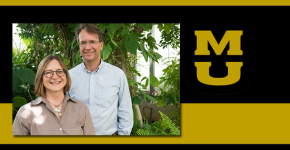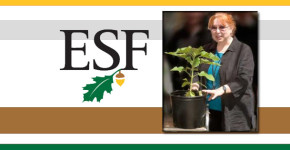Category: Botany
-

Joshua Brake, Harvey Mudd College – Using Light to Analyze Plants
Light can help us in a variety of ways that are still being determined. Joshua Brake, assistant professor of engineering at Harvey Mudd College, looks inside plants to find one. Joshua Brake is an Assistant Professor of Engineering at Harvey Mudd College in Claremont, California. Before joining the faculty at Harvey Mudd, he received his…
-

Tammy Mildenstein, Cornell College – Monarch Butterfly Preservation
On Cornell College Week: The restoration of monarch butterfly populations is a vital preservation topic. Tammy Mildenstein, assistant professor of biology, says how we still need to know more about how they use their habitat. Tammy Mildenstein is an assistant professor of biology at Cornell College in Mount Vernon, Iowa. She teaches courses in biology,…
-

Alexandra Kosiba, University of Vermont – The Rebound of the Red Spruce
The red spruce is coming back to the Northeastern United States. Alexandra Kosiba, researcher in the Rubenstein School of Environment and Natual Resources at the University of Vermont, explores why these trees have made a rebound after years of decline. Alexandra Kosiba is a forest ecologist and dendrochronologist who specializes in understanding tree response to…
-

Seth Davis, University of Idaho – Beneficial plant viruses
There can be some surprising benefits to being sick. Seth Davis, postdoctoral scientist at the University of Idaho, explains how sometimes when a plant gets a virus, it can be a good thing. Dr. Seth Davis received his B.S. in Forestry, M.S. in Forest Entomology, and Ph.D. in Forest Science from Northern Arizona University,…
-

Laura Rokosz, Monmouth University – Aeroponic Gardening
Soon, your garden might require no dirt whatsoever. Laura Rokosz, adjunct professor of Nutrition Sciences in the Department of Chemistry and Physics, Monmouth University School of Science, explores the vertical irrigation design of aeroponic gardens. Laura Rokosz is a seasoned Pharmacologist and Food Scientist with 28 years of experience in the Pharmaceutical and Biotechnology industries.…
-

Ben Schwessinger, UC Davis – Plant Immunity
We just found out that plants can hear. Now, we’ll learn about their complex immune systems. Ben Schwessinger, a post-doc at UC Davis, is studying how plants fight off pathogens. Dr. Benjamin Schwessinger is a Human Frontier Science Program long-term postdoctoral fellow in the laboratory of Prof. Pamela Ronald at UC Davis’s Department of Plant…
-

Heidi Appel, Rex Cocroft, University of Missouri – Plants Can Hear
To see whether predator noises would affect plants, two University of Missouri researchers exposed one set of plants to a recording of caterpillars eating leaves, and kept another set of plants in silence. Later, when caterpillars fed on the plants, the set that had been exposed to the eating noises produced more of a caterpillar-repelling…
-

Susan Kalisz, University of Pittsburgh – Recipe for Invasive Plant Species
Species interaction dictates a great deal of a location’s biodiversity. Susan Kalisz, professor of biology at the University of Pittsburgh, is linking the diet of deer to the success of the animals’ surrounding flora. Susan Kalisz is a professor of biological sciences at the University of Pittsburgh. She received her Bachelor’s degree from the University…
-

Lee Newman, SUNY ESF – Using Plants to Address Environmental Issues
The Fukushima Daiichi nuclear disaster is having significant consequences on our environment. Dr. Lee Newman, associate professor at the State University of New York’s College of Environment Science and Forestry, discusses phytoremediation as a potential clean-up method. Dr. Lee Newman is an associate professor at the State University of New York’s College of Environmental Science and Forestry.…
-

Victor Albert, University at Buffalo – Ancient Lineage of Flower DNA
Studying the DNA of the ancient Amborella flower is opening up new insights into the evolution of certain plants and animals. The University at Buffalo’s Dr. Victor Albert is looking deeply into the ancient origins of this Amborella and working to sequence its genome in order to better understand how life has developed on Earth. Dr. Victor Albert…
